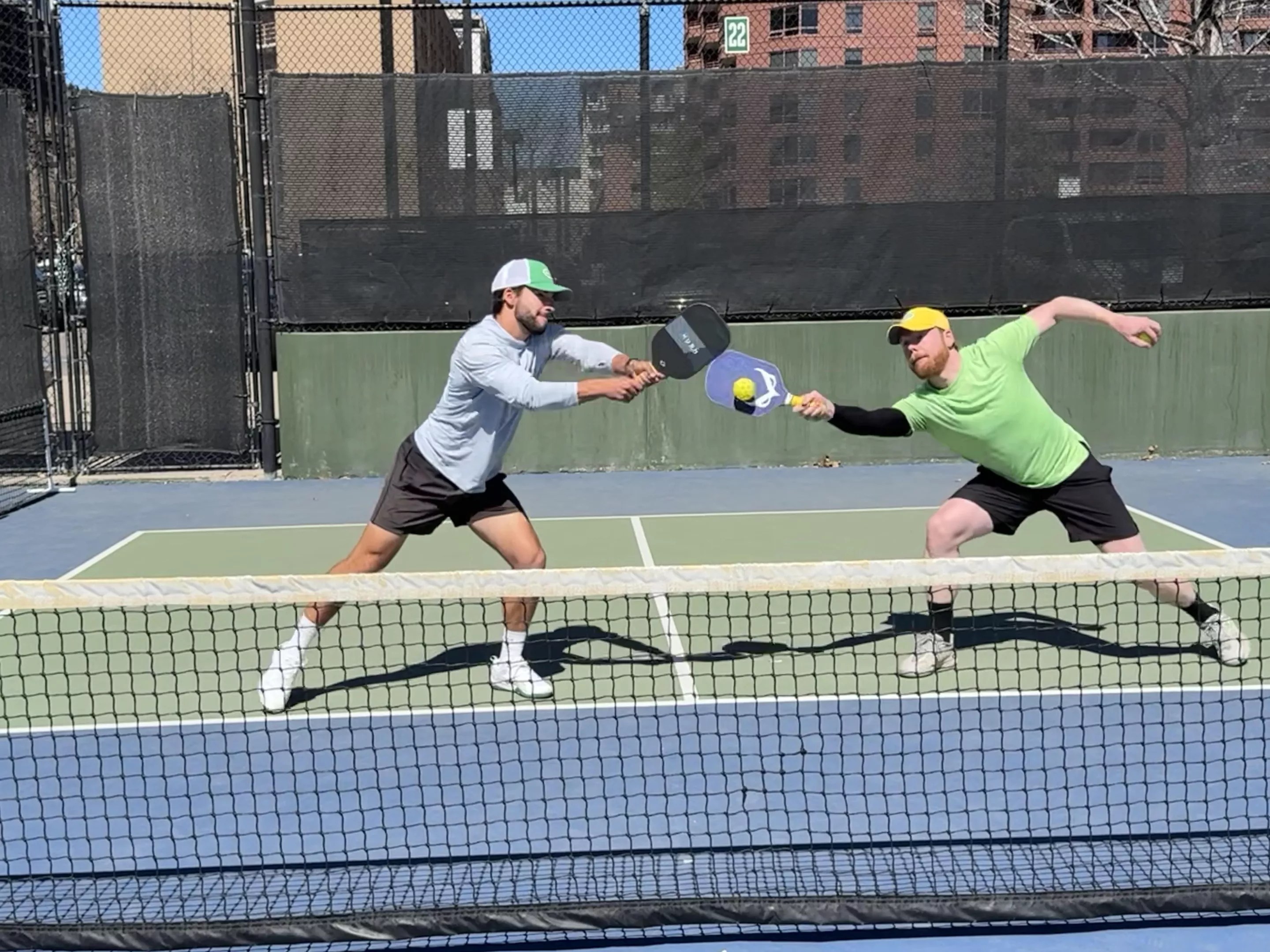
Gates Tennis Center

Audio By Carbonatix
Gates Tennis Center in Cherry Creek didn’t want pickleball problems over noise complaints from nearby homes, so a third of its courts are going soft.
The six courts at the north end of the 3300 East Bayaud Avenue facility, dubbed the North Courts, are closest to residences. People who live in those homes voiced concerns about noise from pickleball, prompting the facility to listen closer.
Longtime Gates Tennis Center manager Sam Hitman says audio measurements revealed noise from those pickleball courts was a few decibels over the Denver Noise Ordinance, so Gates wanted to make a change.
“Absolutely no finger-pointing,” Hitman says. “We just want to be a good neighbor. We wanted to be proactive. …We’re just trying to really thread the needle on the solution of being good neighbors and also still providing pickleball to thousands of people in our community.”
Denver has had several noise problems related to pickleball since the sport sharply rose in popularity in 2020 and 2021. Those issues lead to the permanent closure of the city’s Congress Park pickleball courts and the temporary closure of Mamie D. Eisenhower Park courts before the city reopened the courts under the condition that players use sound-dampening foam balls.
Gates didn’t want to face any possible court closures, according to Hitman. And, since Gates employees check people in for court times, the special pickleball equipment can be effectively enforced, he adds.
To be sure the noise solutions worked without compromising the game, Gates tested as many quiet pickleball products as the staff could find, according to Hitman. Denver Department of Public Health and Environment officials were even invited to confirm whether gameplay complied with the noise ordinance, discovering that some products claiming to make pickleball quieter didn’t actually decrease noise.
However, Gates found three choices that bring decibel measurements down and are actually fun to play with. After trying out the Librarian Foam Pickleball that Denver Parks & Recreation implemented at Eisenhower, Gates staff found that changing the usually plastic ball to foam impacted the integrity of the game. Instead, all of Gates’ solutions alter the paddles.
The Hush is a more cushioned paddle compared to the hard surface of a typical pickleball paddle, while the Owl has a felt cover and is allowed for use during official USA Pickleball events.
Lastly, Gates invested in an adhesive covering that can be stuck to existing paddles and doesn’t leave residue, so people can take it on and off as they wish. The covering adds only about two ounces of weight, Hitman says, so it’s a good option for players who are particular about their paddles but want to use the quiet courts.
Gates purchased a mixture of the three products to the tune of around $5,000, according to Hitman.
For dedicated players who have old paddles lying around, investing in an adhesive cover for themselves to dampen noise could be worthwhile, Hitman suggests. Gates is also considering an educational campaign encouraging people to become “two paddle players,” with one quiet paddle for playing in urban areas and one regular paddle for other situations.
“We’re trying to raise awareness to players that it’s okay to have a backup paddle that’s your noise-reduction paddle,” Hitman explains. “That’s good for the sport long term.”
Still, Gates is aware that many people won’t want to make the switch to quiet equipment, so the other twelve pickleball courts at the facility remain “regular old, competitive pop, crackle, pop pickleball courts,” Hitman assures.
“The real serious players, they want their paddle because they already invested time and money in their paddle, so we would just advise them [to] try your best to get the other twelve courts,” he says. “It’s their right to not want to try these paddles, but the paddles are good paddles.”
Gates is offering free rentals of the quiet equipment right now; Hitman says the tennis center found someone willing to subsidize the paddles through the GTC Community Fund, a 5013c fund dedicated to Gates through the Park People, a local nonprofit that serves as the governing body of the tennis center.
Gates estimates the equipment will last through August before wear and tear requires replacements, so the facility may have to start charging for rentals at that point to fund replacements – but if another sponsor or community members step up through the GTC Community Fund, Gates would love to continue offering the quiet equipment for free, Hitman says.
The City of Denver, which leases the land to Gates, is hopeful about the new equipment at the North Courts.
“Sam runs a great facility and we work closely with him and the Park People to ensure we’re coming up with the best solution for all parties,” says Denver Parks & Recreation spokesperson Stephanie Figueroa.
The pickleball playing community seems excited, too, with Hitman sharing that the North Court Top Dog league, designed for high level players on the quiet courts, sold out in just three days.
“People are willing to try it and go for it, and we’re thrilled that people are not really phased,” he says.